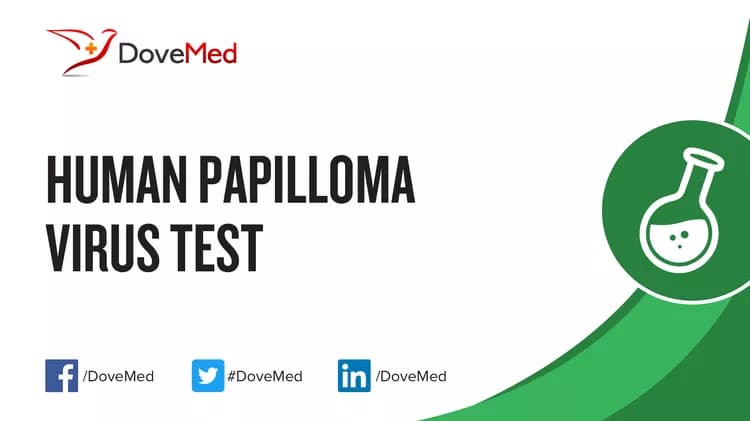
Human Papilloma Virus (HPV) Test
What are the other Names for this Test? (Equivalent Terms)
- HPV DNA Test
- HPV (Human Papilloma Virus) Test
What is Human Papilloma Virus (HPV) Test? (Background Information)
Human papilloma virus (HPV) is a sexually-transmitted virus. Many subtypes of HPV exist:
- While some subtypes cause benign skin/genital warts (mild infection, not capable of turning cancerous and spreading to other tissue)
- Other subtypes called “high-risk types” are capable of causing of causing persistent infection that may lead onto cervical cancers in women. The high-risk types may also cause cancers of the vagina, mouth, throat, anus, and penis
- High-risk types of HPV include types 16, 18, 31, 33, 39, 45, 51, 52, 56, 58, 59, 66, 68, and 73
- Among these, types 16 and 18 alone, account for almost 70% of cervical cancers occurring in women (in the USA)
- The Human Papilloma Virus Test looks for the presence of genetic material of HPV high-risk types in samples from the cervix, in women. In men, the testing may be done on cell samples, taken from the anus
What are the Clinical Indications for performing the Human Papilloma Virus (HPV) Test?
The physician may order a Human Papilloma Virus Test, under the following circumstances:
- To screen women between the ages of 30-65 years - HPV DNA Testing is performed along with a Pap smear, every 5 years
- To evaluate a woman between the ages of 21-30 years, when a Pap smear shows abnormal cells (atypical squamous cells of undetermined significance, termed ASCUS)
- To evaluate males at high-risk, such as men, who have sex with men and those with HIV infections
How is the Specimen Collected for Human Papilloma Virus (HPV) Test?
Sample required:
- Cell sample from cervix in women
- Cell sample from anus in men
Process:
- To obtain a cervical sample, a spatula, cervical brush, or a swab, is used. The woman is made to lie down on her back, like for a pelvic exam. A speculum is then used, to keep the vagina open, while the sample is collected
- To sample cells from the anus, a swab or brush is used
- The procured specimen is placed into a liquid preservative, after collection
Preparation required:
- Avoid vaginal douches, creams, and tub baths, before the test
- Abstain from sexual intercourse, 24-48 hours prior to testing
- Avoid scheduling the test during a period (menses)
What is the Significance of the Human Papilloma Virus (HPV) Test Result?
The Human Papilloma Virus Test result may either be positive or negative, for high-risk type of HPV. This indicates a presence or absence of high-risk type HPV infection, respectively.
- Positive HPV Test results indicate increased chances of developing cancer
- When a Pap smear is abnormal, but HPV Testing is negative, follow-up testing is recommended after 3 years
- When a Pap smear is normal, but HPV Testing is positive, follow-up testing is recommended after 1 year
The laboratory test results are NOT to be interpreted as results of a "stand-alone" test. The test results have to be interpreted after correlating with suitable clinical findings and additional supplemental tests/information. Your healthcare providers will explain the meaning of your tests results, based on the overall clinical scenario.
Additional and Relevant Useful Information:
- An abnormal Pap smear and a positive HPV Test result, require further examination and a biopsy, in order to make a confirmatory diagnosis
The following article link will help you understand cervical cancer.
https://www.dovemed.com/diseases-conditions/cervical-cancer/
Certain medications that you may be currently taking may influence the outcome of the test. Hence, it is important to inform your healthcare provider, the complete list of medications (including any herbal supplements) you are currently taking. This will help the healthcare provider interpret your test results more accurately and avoid unnecessary chances of a misdiagnosis.
Related Articles
Test Your Knowledge
Asked by users
Related Centers
Related Specialties
Related Physicians
Related Procedures
Related Resources
Join DoveHubs
and connect with fellow professionals

0 Comments
Please log in to post a comment.